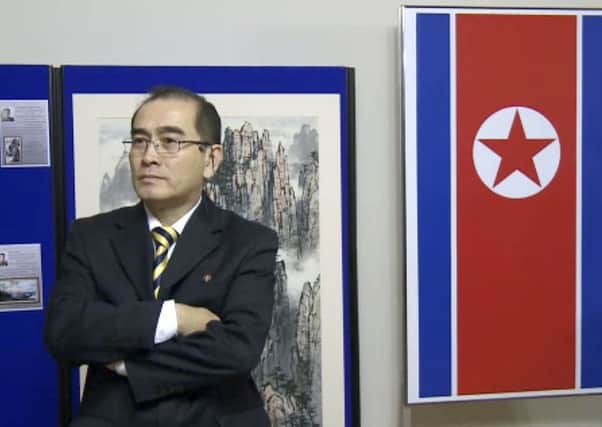North Korean diplomat defects to South Korea


Thae Yong Ho, minister at the North Korean Embassy in London, has arrived in South Korea with his family and is under the protection of the South Korean government, Seoul’s Unification Ministry said. Ministry spokesman Jeong Joon-Hee said Thae told South Korean officials that he decided to defect because of his disgust with the government of North Korean leader Kim Jong Un, his yearning for South Korean democracy and worries about the future of his children.
Jeong said Thae was the second-highest official in North Korea’s embassy, and is the most senior North Korean diplomat to defect to South Korea. In 1997, the North Korean ambassador to Egypt fled but resettled in the United States.
Advertisement
Hide AdAdvertisement
Hide AdJeong refused to give further details about Thae’s defection, citing possible diplomatic problems with a concerned country he didn’t identify. Britain’s Foreign Office declined to comment.
The highest-level North Korean to seek asylum in South Korea is Hwang Jang-yop, a senior ruling Workers’ Party official who once tutored Kim Jong Un’s late father, dictator Kim Jong Il. Hwang’s 1997 defection was hailed by many South Koreans as an intelligence bonanza and a sign that the North’s political system was inferior to the South’s. Hwang died in 2010.
Thae’s defection will likely enrage North Korea, which often accuses South Korea of kidnapping or enticing its citizens to defect.
South Korea doesn’t always make high-level defection cases public. Its revelation of Thae’s defection came as ties between the rivals are at one of their lowest points in decades over the North’s nuclear ambitions. North Korea conducted its fourth nuclear test in January, and South Korea has been working hard to apply more international pressure on the North.
Jeong said Thae’s defection could be a sign that unity in Kim Jong Un’s ruling class is weakening. Analyst Chang Yong Seok at Seoul National University disputed that assessment, saying there are no tangible signs that Kim’s grip on power is being challenged. “Senior North Korean officials have defected before, but these have all been isolated cases that weren’t followed by a chain of defections by other officials,” he said.